Last Updated on July 31, 2021

Welcome to The Best Movie You NEVER Saw, a column dedicated to examining films that have flown under the radar or gained traction throughout the years, earning them a place as a cult classic or underrated gem that was either before it’s time and/or has aged like a fine wine.
This week we’ll be looking at GHOST DOG: THE WAY OF THE SAMURAI.
Some spoilers may be found.

THE STORY: When a mysterious hitman named Ghost Dog who follows the Way of the Samurai is betrayed by the mob, he embarks on a mission to save his master and himself.
THE PLAYERS: Writer/director Jim Jarmusch. Composer/actor the RZA. Actors Forest Whitaker, Isaach De Bankole, Henry Silva, John Tormey, Cliff Gorman, Tricia Vessey, Camille Winbush.
THE HISTORY: "There is something to be learned from a rainstorm. When meeting with a sudden shower, you try not to get wet and run quickly along the road. But doing such things as passing under the eaves of houses, you still get wet. When you are resolved from the beginning, you will not be perplexed, though you still get the same soaking. This understanding extends to everything." So says one of the inserts in GHOST DOG: THE WAY OF THE SAMURAI, the words themselves a quotation pulled from Hagakure (The Book of the Samurai), and it couldn't have been more prophetic for how this movie came to be. Jim Jarmusch, having recently finished DEAD MAN and his Neil Young documentary YEAR OF THE HORSE, was in a camera shop when he just happened to bump into Forest Whitaker. They began to talk, found a chemistry, and over the next year brainstormed back and forth about what a collaboration could be. Which fit right into Jarmusch's style, as he has said he prefers to start with the actor and evolve a story from the character they create together.
The talk between the two men dealt primarily with spirituality, tribal and aboriginal culture as they evolved the character who would come to anchor what is perhaps the most accessible of Jarmusch's films: Ghost Dog. Inspired by hip-hop and be-bop – forms where you can "play within an outside solo and you can quote the standard, weave it in there, and you're not playing the standard but you are referring to it" – Jarmusch embraced the sorts of referential practice that he would normally have avoided, writing in allusions to everything from POINT BLANK to RASHOMON to LE SAMURAI as well as outright including cartoons like Betty Boop and Woody the Woodpecker. Released in March of 2000 for a budget of around $2 million, it made $3.3 million domestically and another $6 million internationally. It also marked Wu-Tang Clan member the RZA's feature film debut, both as actor and composer.

Jim Jarmusch: I didn’t know that Forest had studied martial arts. The scene when he works out with swords on the roof, that was something I wanted him to do, but I thought that he’d have to train to do that. But he already knew that stuff, and his way of using the guns as an extension of his body, in a way you’d use a sword in martial arts, came from him. Certain ways he moves physically. He brought a lot of beautiful things to the film, but mostly concerning his character rather than the story, although he was interested why his character would do certain things. He was really, really helpful, very generous, really there for the film, a hundred and ten per cent. It was a really good experience to work with someone so focused.
WHY IT'S GREAT: Identity is a powerful thing. It can define us, separate us, unite us – even save our lives. In a world with so many shifting pieces identity often gives the anchor we need to simply stay sane and functional, let alone actually emerge from the whirlpool of our own woes to better the journeys of others. And while GHOST DOG: THE WAY OF THE SAMURAI plays with a lot – spirituality, cinematic reference, mixtures and collisions of culture, philosophy chief among them – all of those seem to be bound up by the layered exploration of identity, and what happens when the way we’ve defined ourselves in this crazy and bananas thing called life is challenged, attacked, or even destroyed.
There’s an apocryphal story of Jim Jarmusch’s time studying film. He turned in a script to the teacher, and the script was returned to him with the note that it needed more action. So he took it home and rewrote it. The story goes that the new script he turned in had even less action… and at the end of his schooling, he was the only student the teacher took on as a personal assistant. I can’t speak for the whys or wherefores of the teacher’s decision making process, but if Jarmusch’s career is any indication (especially his other hit man piece THE LIMITS OF CONTROL) then his actions showed a man who was, even in those early years, confident in his authentic self. Confident in being true to who he had become in this life. Which makes me think that if he was a character in GHOST DOG: THE WAY OF THE SAMURAI he would have been one of the few who survived through the end, because the only ones who do are those who are also true to their authentic selves. Attached to no identity other than human, they simply are who they are.

Jim Jarmusch on Henry Silva (the mobster in the middle): I went to LA, met him and I love this guy. He took me out to his car. In the trunk, he had tapes of his work that he’d made himself. It wasn’t his classic films like The Manchurian Candidate or Viva Zapata!; it was all stuff of him with Steven Segal and Chuck Norris. He gave me that and I gave him the script. I said, 'Please, don’t show this to anyone’. And he said, ‘I’ll keep it in the trunk of my car, I’ll read it and put it back.’ I thought he was joking. When I was in LA again, months later, and I met him, he took me out to his car and said, 'You see.’ My script was still in the truck of his car. I love this guy.
Ghost Dog doesn’t work for the mob – he works for a man named Louie who happens to be in the mob. Louie saved his life many years before, and in the wake of the beating that nearly killed him and the almost miraculous intervention of this paradoxically principled man Forest Whitaker’s character emerges four years later with a new code guiding him and a new mission in his life: retainer to Louie, willing and ready to do whatever he is ordered. For the mob, that means the occasional act of enforcement through murder. We never know who Ghost Dog was before this, because it doesn’t matter. He has fully become this identity, and in doing so has brought himself a curious kind of peace. This is who he is now, so wholeheartedly that he both cannot see life without it and has no need for life without it.
Nor is he alone in that – every mobster in the film’s world is so deeply entrenched in their established identity to the point of cartoonishness, and they too are willing to die for it. And die they do, with their attempt to have Ghost Dog killed royally backfiring as he turns his talents and philosophy on them to simple and devastating effect. "He's sendin' us out like real fucking' gangsters" one of them says, and you can hear how thankful he is. They’re a bunch of old men who lived by a code that they haven't truly honored in years, a code that is itself dying, and of course it’s the very action they take as a part of that code – ordering Ghost Dog’s death as punishment for his killing of a “made man” – which leads to the final bullet in that code’s head. One code dismantles another, and by the film’s end both are dead while something new, something sleek and chic, has survived to take over. It is an ending which asks: is there something we have in our lives worth dying for? Ritual suicide (out of shame or loyalty) was a potential part of every samurai’s practice, connected to a greater life perspective of living in each moment as if one might die in the next. For “if one fully understands the present moment,” says the Hagakure, “there is nothing left to do, and nothing else to pursue."

Forest Whitaker on Isaach de Bankole and communication: He’s great, isn’t he? I only speak a little bit of French, I couldn’t hardly understand what he was saying, but you can understand him if you watch him, because he’s so animated. That was one of the brilliant things about this film, how it shows true communication, sometimes in odd ways, like with the bird, the passenger pigeon. And then that scene on the roof, where we’re looking at the guy with the boat, and there are three different languages. It’s quite unusual, and I like that theme, about transcending words… I only talk for like 30 or 40 minutes, when you see me. So my whole life has been that kind of silence, you know? Even when I’m talking to the bird who comes to me: “Yeah, there is something you could do for me.” Or the dog: I was having a silent conversation with the dog, until the girl tells me I can tell him to go.
Of course, this isn't to say that it's all philosophy; rather, Jarmusch has woven those questions and ideas into the very fabric of the film's framework in such casual way they they are absolutely ingrained into its every beat. It's philosophy couched in cool. The action, the jokes, the numerous scenes of Ghost Dog driving with his personal CDs of the RZA's compositions – they work on their own, and they work as a vehicle for the deeper themes and emotional currents that have always underscored Jarmusch's work. In my re-watch for this article it was the humor that stood out in particular, bits like when one of the creaky head gangsters get into a rant session about the names of rappers only to turn to a henchman and say "get Sammy the Snake, Joe Rags, Big Angie." The whole thing is an unapologetic mixture of high and low art, and as much as it shouldn't work it does with ease and confidence.
GHOST DOG: THE WAY OF THE SAMURAI – which imitates and co-opts other identities – is a fascinating case of a film whose very form mirrors the lives and struggles of its characters. It’s arguably a step beyond what someone like Tarantino does when he homages the works of others while simultaneously recasting them in new context, with Jarmusch using the very fact that he’s making references at all (which up until this point in his career he had carefully avoided) to turn the film into something so much more than its surface self. The film looks like one thing, but as soon as you start to unpack its pieces it becomes all too clear that the film has gone so far as to become a character itself. Through the fade ins and outs, the insert quotations from the Hagakure, the cool flow of the RZA’s score, the small moments of large discovery, the images and sequences lifted from other films – all of it comes together as something alive, something which finds its identity the same way human beings do.
Then the credits roll, and as with all films it’s done and gone just like that. Like the memory of a time now past. Like a film. Like a ghost.

Jarmusch on scoring the RZA: Well, it’s like, if you want to find a criminal you don’t go to the police, you go to other criminals. So I realised I’m not going to get the RZA through his lawyer or management, I’ve got to find people I know who know him. So, I did and they got me to him. At our very first meeting we had a very strong understanding, an easy way to communicate with each other, even though we are from very different places, we got along really well. From the first meeting he said he wanted to do it, which surprised me because people are always hitting on him to do so many things.
BEST SCENE: A scene that brings so many of the film's different pieces together in one. Respect.
SEE IT:
You can buy GHOST DOG: THE WAY OF THE SAMURAI on Blu-Ray + DVD HERE!
PARTING SHOT:
Jim Jarmusch, on inspiration and the genre qestion: Actually, I didn’t start with the Samurai thing. I started with the character and then he became a Samurai. But I’ve been interested in Samurai culture after first seeing Kurosawa’s interpretation of it in films, and then I found this book, Hagakure, when I was half way through the script. Then it wove its way into the film itself, somehow, I don’t know how to explain it. I guess what I’m most interested in is that in Western culture warriors are for a specific purpose, which is to do battle for war, and in Eastern culture warriors are also prepared on a very deep spiritual level, the Samurai code, and even deeper the Shaolin priests, that are Kung Fu masters but are also enlightened priests. The difference interested me a lot, to have spiritual depth to a character who is a warrior… I don’t know. You know, I’m not analytical about my own stuff; I’m so intuitive that it’s hard for me to say because it has a lot of genres in it. I think of it as a Gangster/Gangsta/Hip-Hop/Samurai/Eastern/Western, you know?





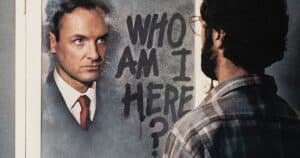
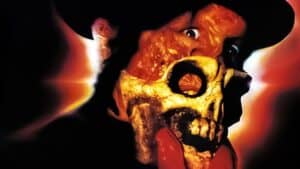
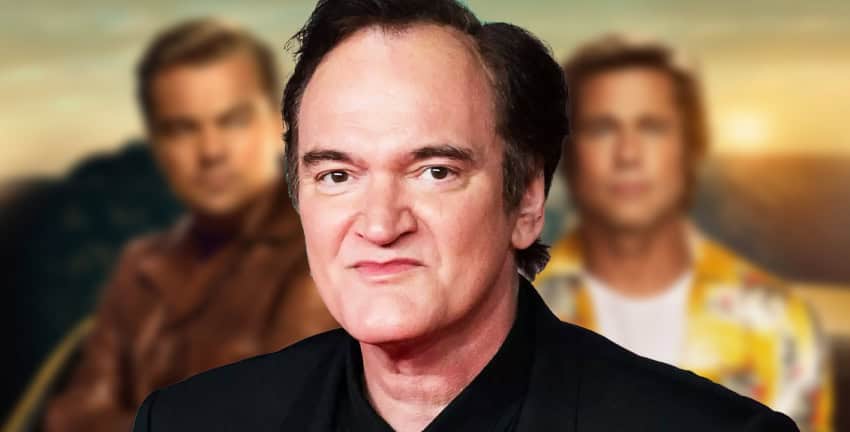
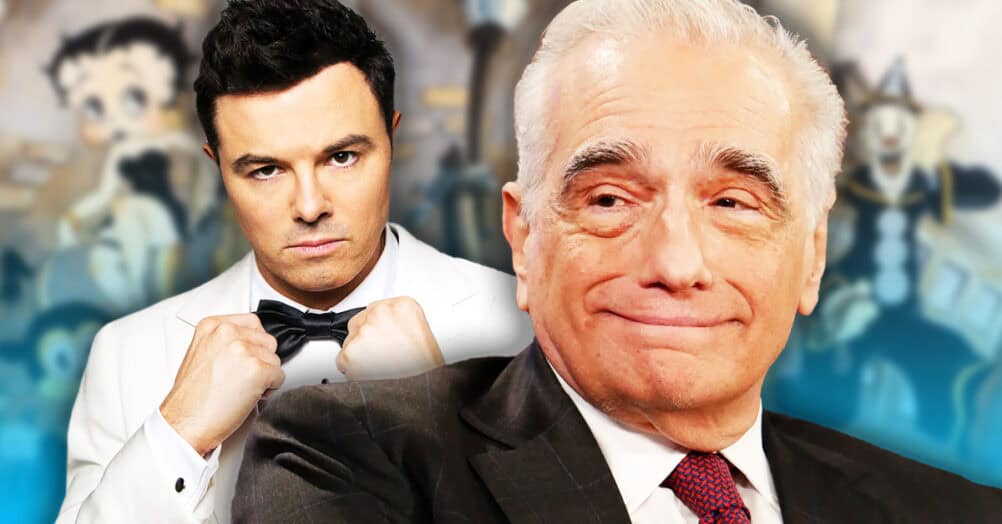
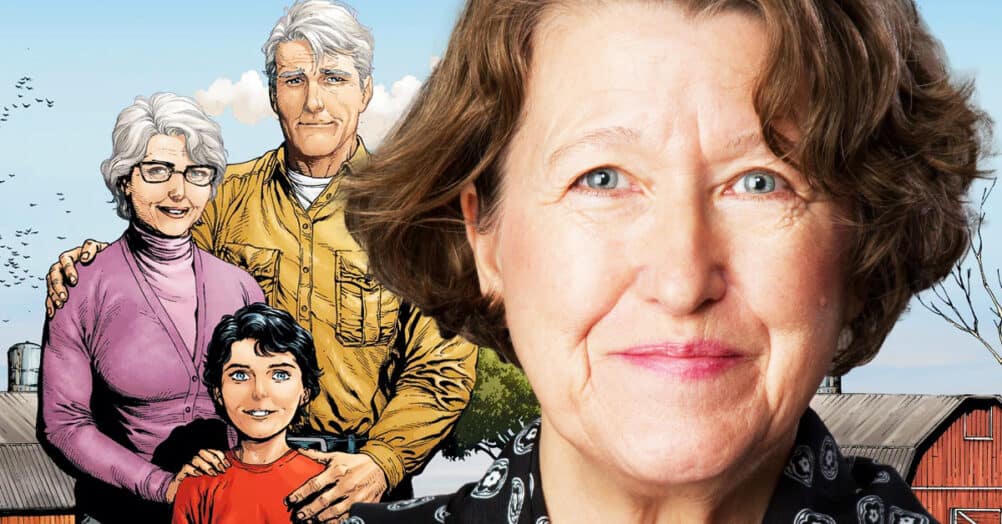
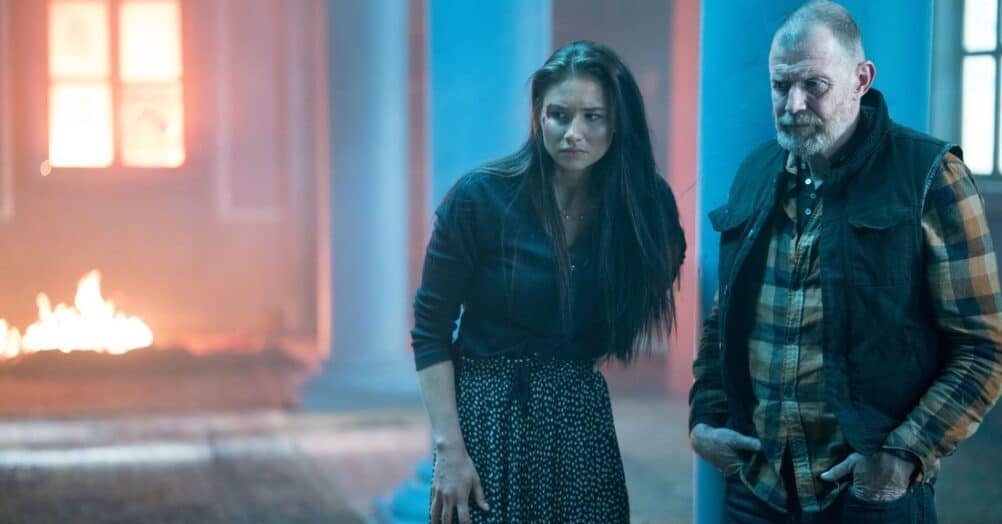
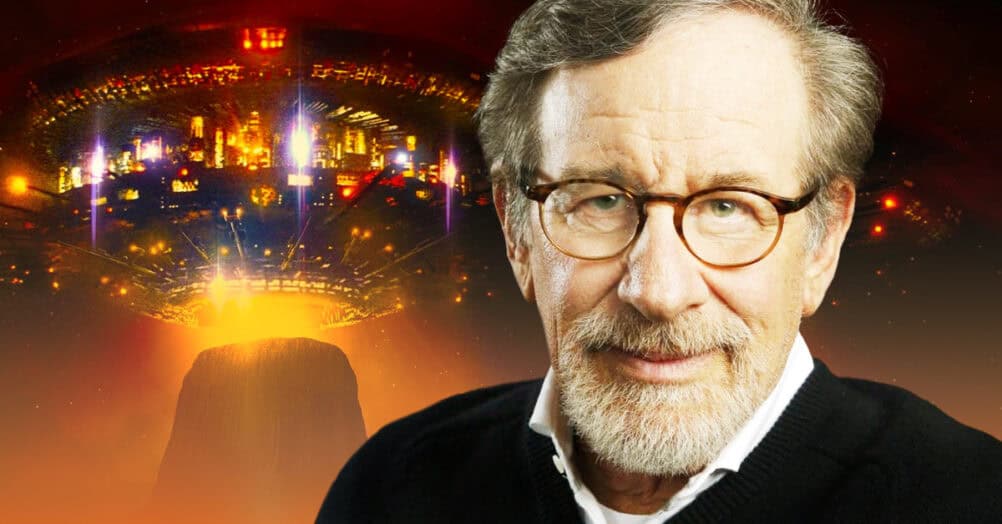
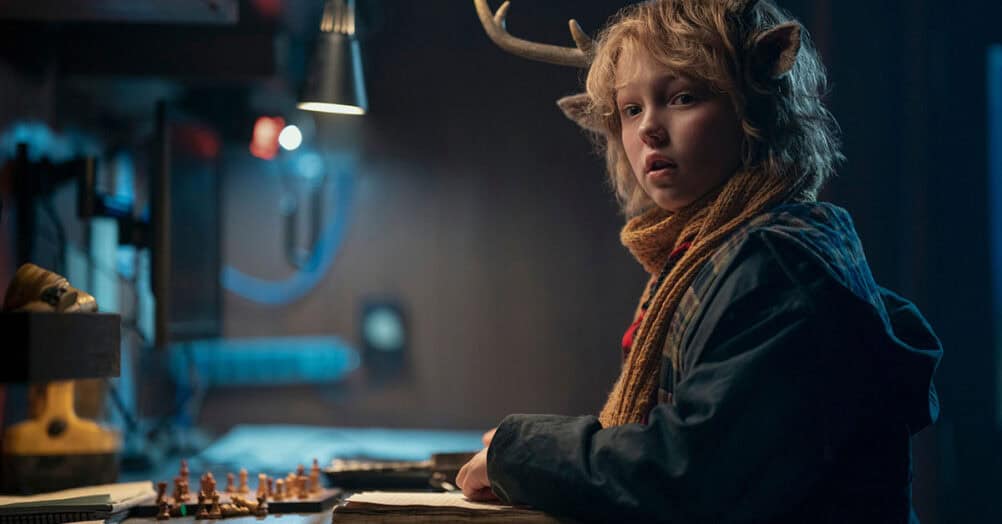
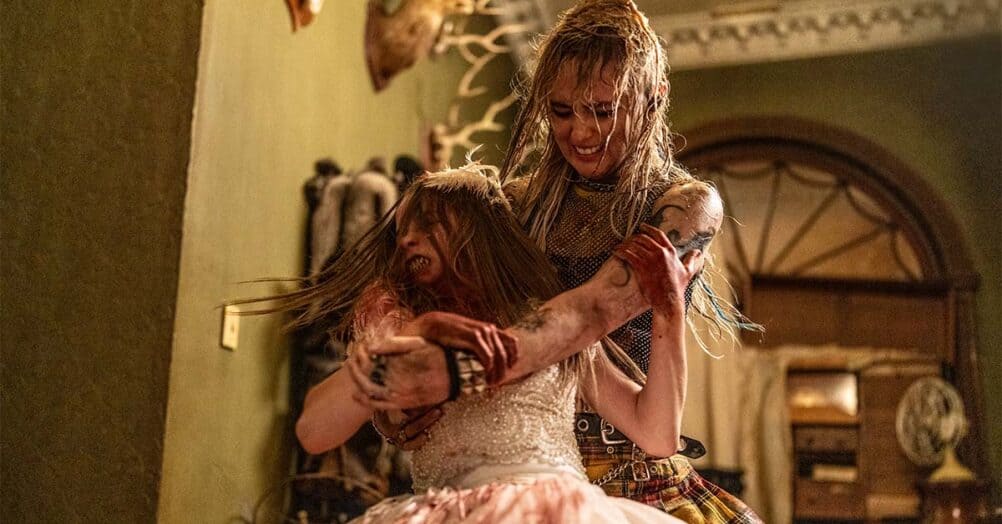
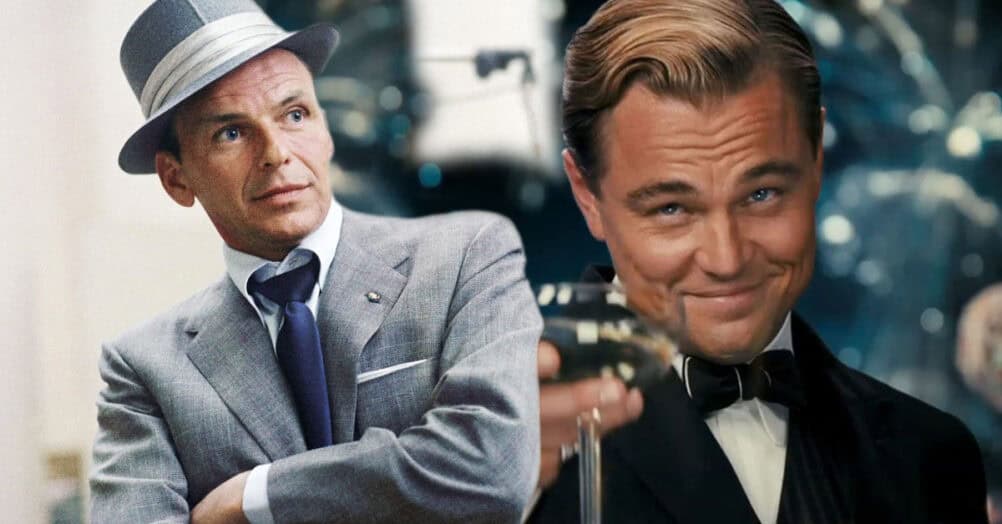
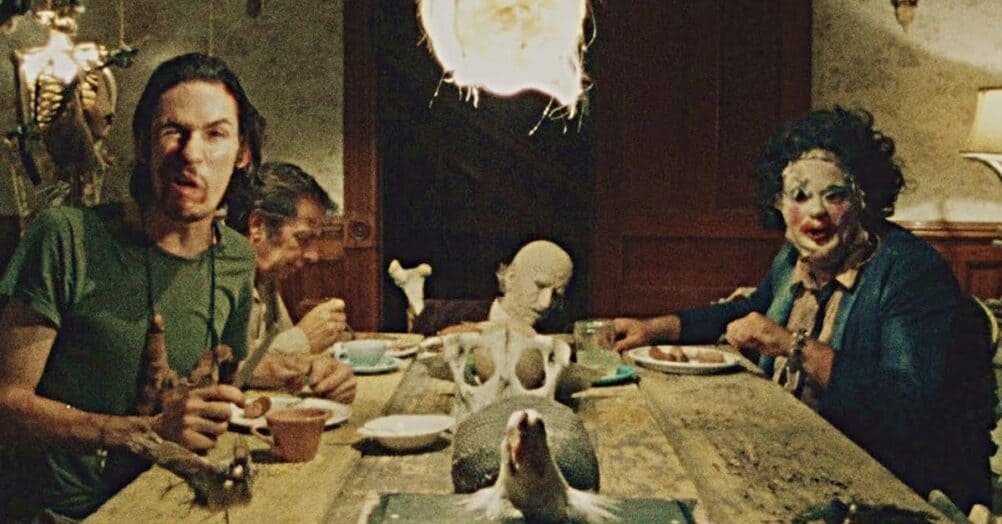
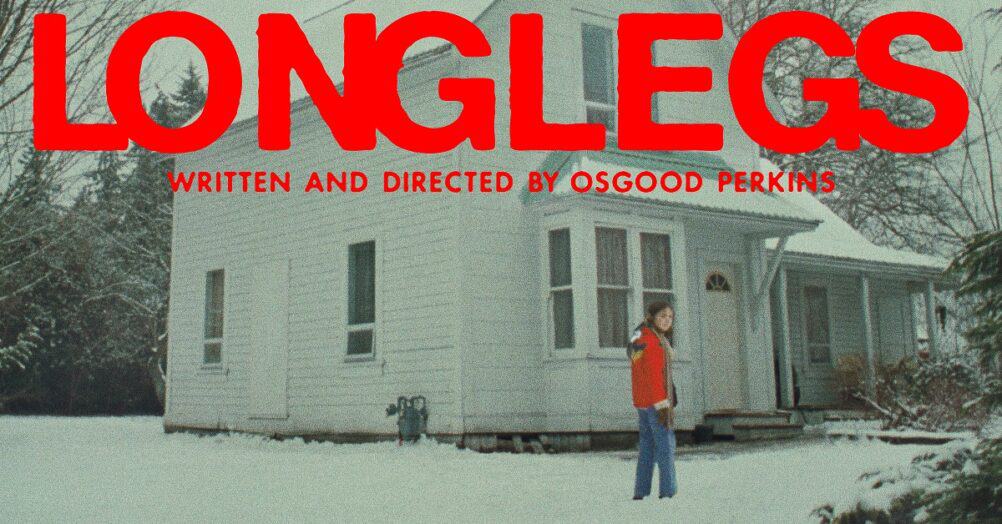
Follow the JOBLO MOVIE NETWORK
Follow us on YOUTUBE
Follow ARROW IN THE HEAD
Follow AITH on YOUTUBE